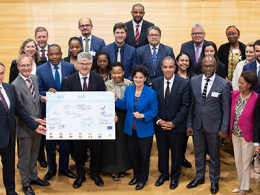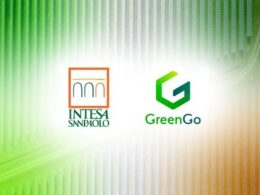French energy group TotalEnergies has begun the second development phase at Iraq’s Ratawi oilfield and started construction of a major seawater treatment plant, marking the final stage of its $27 billion multi-energy venture in the country.
The Gas Growth Integrated Project (GGIP) — led by TotalEnergies with a 45% stake, Iraq’s state-owned Basra Oil Company (30%) and QatarEnergy (25%) — is designed to expand Iraq’s oil, gas and power capacity, reduce reliance on Iranian imports, and attract renewed foreign investment. Final contracts were signed on Sunday in Baghdad during a meeting between Iraq’s prime minister, Qatar’s energy minister and TotalEnergies’ chief executive.
The first redevelopment of the Ratawi field, launched in late 2023, is set to raise output to 120,000 barrels per day by early 2026. The newly launched second phase is expected to nearly double production by 2028 while eliminating routine flaring of gas. According to Iraq’s prime minister’s office, Turkey’s ENKA will construct an oil and gas processing facility with capacity for 210,000 barrels of oil and 163 million standard cubic feet of gas per day.
As part of the scheme, South Korea’s Hyundai Engineering and Construction will build a 5 million-barrel-per-day seawater treatment plant to reduce freshwater use in oil production, while China’s Petroleum Engineering & Construction Corp will deliver a gas processing facility in southern Iraq with a daily capacity of 600 million standard cubic feet.
The wider project also includes a 1-gigawatt solar park and infrastructure to capture and utilise associated gas for power generation, reducing Iraq’s dependence on Iran, which currently supplies up to 40% of the country’s gas and electricity needs.
Prime Minister Mohammed Shia al-Sudani hailed the project as a sign of growing foreign investment in Iraq, where oil production capacity has remained stagnant at around 5 million barrels per day despite earlier ambitions to rival Saudi Arabia’s 12 million barrels.
Major international oil firms such as ExxonMobil, Shell and BP had previously scaled back Iraqi operations due to poor returns under technical service contracts, a trend Baghdad hopes to reverse with the new revenue-sharing model underpinning the TotalEnergies deal.





















